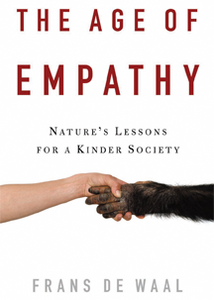Posts tagged "psychology"

Mind in Indian Buddhist Philosophy
Mind in Indian Buddhist Philosophy
 No other classical tradition, East or West, offers a more complex account of mental phenomena than Buddhism. Buddhists do not associate mental phenomena with the activity of a substantial, independent, and enduring self or atman. Buddhist theories of mind center on the doctrine of no-self (anatma), which claims that human beings are reducible to their physical and psychological constituents.
No other classical tradition, East or West, offers a more complex account of mental phenomena than Buddhism. Buddhists do not associate mental phenomena with the activity of a substantial, independent, and enduring self or atman. Buddhist theories of mind center on the doctrine of no-self (anatma), which claims that human beings are reducible to their physical and psychological constituents.
1500 years of analysis
Indian Buddhist analyses of the mind span a period of some fifteen centuries, from the Buddha (ca. 450 B.C.E.) to late Mahāyāna Buddhism (500–1000 C.E.). Philosophical accounts of mind emerge from the Abhidharma traditions (150 B.C.E. to 450 C.E.), while their roots are found in the Buddha's teachings of the no-self.
See things as they really are
The Buddha declared that we ought to regard any sensation or form of consciousness, “past, future, or present; internal or external; manifest or subtle...as it actually is...: ‘This is not mine. This is not my self. This is not what I am’” (Majjhima Nikāya I, 130).
The "self"
The denial of a permanent self, and the refusal to treat persons as referring to anything real or permanent, is an integral part of the Buddhist view of consciousness.
This Buddhist view is very attractive to modern Psychologists who tend to consider the Self as a construction, not an essence taht is in any way permanent.
The Black Boxes of our minds
Even to Ourselves
The stories we tell about our mental processes are logically appealing but fatally flawed more often than not.
We all have our own theories about how our minds work. Unfortunately evidence based psychology demonstrates that our theories are often wrong. The differences between how we think our minds work and how they actually work can be quite startling, especially when we try to judge others. What we think are important factors in others often are not at all, while what we think is unimportant can make all the difference.
Social Psychology Study
In their classic study Nisbett and Bellows (1977) asked 128 women to judge if a person called Jill matched the requirements to work in a crisis centre. 'Jill', was a creation of the investigators, consisting of 3 pages of information: an interview transcript, answers to a questionnaire and a letter of recommendation.
The information presented to the women about Jill was the same except for 5 crucial factors which changed amongst the participants. The women were told that:
- Jill has an attractive appearance or nothing about her looks
- Jill's academic qualifcations are good or nothing about her studies
- Jill had had a car accident before or not
- Jill spilled coffee on the interviewer's desk or not
- Jill would meet the women subjects soon or not
This meant that each woman saw a different combination of items in Jill's profile.They were then asked to judge Jill on how much:
- sympathy she would have for others,
- the women would like her,
- flexibility she would have in problem solving,
- intelligence she had.
The women were then asked to rate how much each of the above factors influenced their rating on a scale of 1 to 7. The experimenters wanted to see whether the womens' judgements were controlled by factors they thought influenced them. In other words, do people know how their own minds work?
Poor judgement
The women turned out to be surprisingly poor at predicting the ratings of sympathy, likeability and flexibility and the effect of each on their own judgements. For example the women thought if Jill was good-looking she would be more sympathetic to others. But, it had the opposite effect; if Jill was described as good-looking the women thought others would find her less sympathetic.
They thought that the car accident would make Jill more likeable, but it made her less likeable. They thought the coffee-spilling would make her seem less flexible in problem solving; but those same women rated Jill as more flexible. And so on.
The interesting thing
All the women were wrong to the same degree. All the women probably used similar 'common sense' theories about how the mind works, which were mostly wrong. The results suggest that most of us have similar 'theories' about the way the mind works, from our culture or we worked it out from 'common sense'. The only area in which the women were accurate was intelligence. The women thought they could rely on the academic records to judge Jill's intelligence and, they could.
The weakness of introspection
This study shows how poor we are at understanding what will affect our judgement of another's personality, besides intelligence. People might know what they like, but they usually don't know why they like it. Similar results are repeated in other studies showing our lack of understanding of who we're attracted to, how we solve problems and where our ideas come from.
These results are a real challenge to psychologists like myself. The most important decisions in our lives, like choosing how we spend our time and with whom we spend it, are challenged. The stories we believe about ourselves are appealing, but are wrong more often than not.
The Age of Empathy:
Are We Essentially Good or Evil?
i thought that you would like to read what one of our most important primatologists has to say about empathy among animals and how he believes it is a behaviour that has evolved in mammals. He echoes his earlier hypothesis that we are good (altruistic) by nature and not just kindly mannered on the surface. Many believe, what Frans de Waal calls the 'veneer theory' of human behaviour, that we display an altruistic behaviour on the surface but that we are actually evil in our core. He is convinced that we are innately good. How encouraging to hear this from a biologist and zoologist.
 Kachiko
Kachiko
We took my daughter and her friend to see the recent film by Richard Geere called "Hachiko: a dog's story" based on a real dog that lived in Japan in the 1930s. The film helped us remember, as the Yoga and Buddhist traditions do, that we are part of the same family of creatures called mammals. Today, thanks to Darwin, we call this common heritage, evolution. Nevertheless, we all cried uncontrollably when the dog Kachiko, displayed devotion and attachment that compared to the most touching of human devotion. How can it be that he has such deep attachment to someone not of his speicies? Perhaps we are not so separated from other species as we have been led to believe by our Judeo-Christian tradition!
Animals also Display Empathy
Frans de Waal's latest book "The Age of Empathy" illustrates the mounting evidence for not only the six basic emotions as Darwin proposed but much more - empathy and sympathy; emotion and cognition. Not only do many animals feel empathy but they exhibit behaviours that suggest that they are capable of the cognition of empathy. De Waal 'shows us that many animals are predisposed to take care of one another, come to one another’s aid, and, in some cases, take life-saving action'. Here is an excerpt from his new book which was published in the September 2009 issue of Natural History magazine.
An Excerpt from "The Age of Empathy: Nature’s Lessons for a Kinder Society"
"Apes will groom and hug those in distress. There is also evidence of that behavior in dogs. Belgian biologists watched more than a thousand spontaneous fights among dogs released every day onto a meadow at a pet-food company. After aggressive outbursts, nearby dogs would approach one of the combatants—usually the loser—to lick or nuzzle, play with, or simply sit with him or her. Doing so seemed to settle the group, which quickly resumed its usual activities. "
"
"As for its origins, empathy probably started with the birth of parental care. During 200 million years of mammalian evolution, females sensitive to their offspring out reproduced those that were cold and distant. When a pup, cub, calf, or human baby is cold, hungry, or in danger, its mother needs to react instantaneously. Females that failed to respond did not propagate their genes."
"Descended as we are from a long line of mothers who nursed, fed, cleaned, carried, comforted, and defended their young, we should not be surprised by gender differences in human empathy. Two-year-old girls who witness others in distress treat them with more concern than do boys of the same age. And in adulthood, women report stronger empathic reactions than men, which is one reason why a “tending instinct” has been attributed to women."
Frans de Waal
Frans de Waal is a psychology professor at Emory University with a Ph.D. in biology. He is the author of many books, including Chimpanzee Politics and Our Inner Ape. The director of the Living Links Center at the Yerkes National Primate Research Center in Atlanta, de Waal was ranked among the World’s 100 Most Influential People of 2007 by Time.
Can pronouns help your marriage?
We or I and You?
A recent study about the significance of using we vs. separateness pronouns, such as "I" and "You," among married couples has some interesting suggestions. The couples in the study were asked to have a conversation about their marital conflicts. Their emotional experiences during this quarrel were evaluated, and each partner was asked how happy they were in their marriages. The results showed that using we-ness pronouns was associated with higher levels of positive emotions, lower levels of negative emotions, and low levels of cardiovascular arousal. When one spouse used we-ness words, it was soothing to both. The results suggest that using "we" can be healthy and emotionally comforting. Older couples showed greater levels of we-ness usage and a greater sense of shared identity than the younger couples. Among older couples, the wives were more affected than their husband by the use of separate pronouns.
Use 'we' for more positive emotions
What would happen if families consciously used "we-ness" in conversations? Might this create more positive and relaxing moments, emotional closeness and compatibility?
A new theory of depression
Evolutionary psychology
Dr. Andy Thomson became interested in evolutionary psychology in the late 1990s. This line of investigation speculates about the features of the human mind in terms of natural selection. Evolutionary psychology assumes that the brain has a long evolutionary history, which shapes human nature. according to this orientation, we are not a blank slate but a byproduct of imperfect adaptations. Oiur mind was designed to meet the needs of hunter-gatherers. These theories are hard to prove but their assumptions are largely by scientists today. There is no longer any sognificant debate about whether evolution played a role in the development of the human brain. Instead, the current focus is on which of our mental traits are adaptations and which are accidents.
Depression is a paradox for evolutionary psychology — why is a condition that is so costly is also so common. This ia very complex and sensitive subject and I don't want to misrepresent it in any way. However, I believe that the recent controversy is worth discussing in view of the enormous attention given to its alleviation by modern pharmacology and psychiatry and positive psychology.
A new theory of depression
Evolutionary psychology
Dr. Andy Thomson became interested in evolutionary psychology in the late 1990s. This line of investigation speculates about the features of the human mind in terms of natural selection. Evolutionary psychology assumes that the brain has a long evolutionary history, which shapes human nature. according to this orientation, we are not a blank slate but a byproduct of imperfect adaptations. Oiur mind was designed to meet the needs of hunter-gatherers. These theories are hard to prove but their assumptions are largely by scientists today. There is no longer any sognificant debate about whether evolution played a role in the development of the human brain. Instead, the current focus is on which of our mental traits are adaptations and which are accidents.
Depression is a paradox for evolutionary psychology — why is a condition that is so costly is also so common. This ia very complex and sensitive subject and I don't want to misrepresent it in any way. However, I believe that the recent controversy is worth discussing in view of the enormous attention given to its alleviation by modern pharmacology and psychiatry and positive psychology.
My Orientation
My orientation
I have been interested in inner life development since I encountered Christian mysticism in my adolescence. My curiousity led me to study Buddhism and Hinduism and practice oriental meditation. Now as I practice psychotherapy I find myself straddling two different orientations - Eastern mysticism and Western psychology.
A common aim
Both traditions have a common aim - to alleviate personal suffering. The Buddha stated from the begining of his teachings that all is suffering (sarvam dukkha) and that his noble eightfold path is a cure. Psychology literally means the study of the soul and psychotherapy is the use of any procedures that have palliative effects upon any mental, emotional or behavioural disorder. In other words the use of any techinique to reduce human suffering. Both have the same intention. I apply them both.
Combination Psychology
Recently, Western psychology discovered the wisdom of the Eastern traditions. Psychologists such as Jan Kabat-Zinn, Z.V. Segal, J. D. Teasdale and many others have found successful applications for approaches such as mindfulness in combination with Western techniques. I find this trend encouraging.
Integral Psychology
Ken Wilber is an American philosopher who has attempted to integrate the Eastern and Western wisdom literature in an attempt to create an 'Integral Psychology'. He has begun a discussion about the possible integration of premodern, modern and postmodern sources in a systematic embrace rather than the current eclecticism
Lie to me
William James (1842 – 1910), the father of American psychology, had his own particular theory of how human emotions operated. He believed that the body is central to the generation and experience of emotions (similar in some ways to the Darwinian view). James believed that we first must experience the bodily changes that have been initiated directly by the perception of the provoking stimulus. He wrote that “we feel sorry because we cry, angry because we strike, afraid because we tremble, and not that we cry, strike, or tremble, because we are sorry, angry, or fearful, as the case may be.” (James, 1884, p.190). He held that “bodily changes follow directly the PERCEPTION of the exciting fact, and… our feeling of the same changes as they occur IS the emotion” (Ibid, 189-190). In other words James’ theory was that, in order to have an emotion, one must first have bodily changes of some sort.
James delivered a lecture called “The Gospel of Relaxation” in Boston in which he stated that if you are dejected and want to be happy, don’t mope around, act as if you are happy, and you will become happy. “ The …voluntary path to cheerfulness, if our …cheerfulness be lost, is to sit up cheerfully, to look cheerfully, and to act and speak as if cheerfulness were already there.” (James, 1899, p. 122). James was aware of the cognitive component of our emotional state; however, he believed that the feedback we receive from our bodies is such a major influence of our experience of an emotion that it could override the cognitive aspect of the emotion.
James, W. (1884) What is an emotion? Mind, 19, 188- 205
James, W. (1884) Talks to teachers on psychology: and to students on some of life’s ideals New York: Henry Holt

